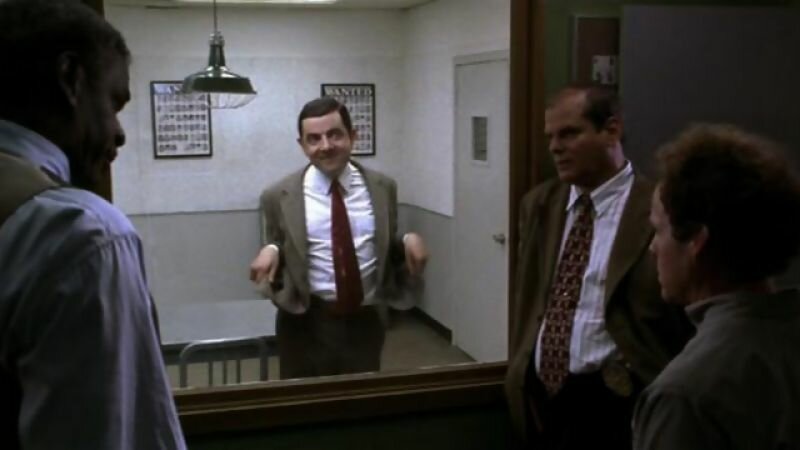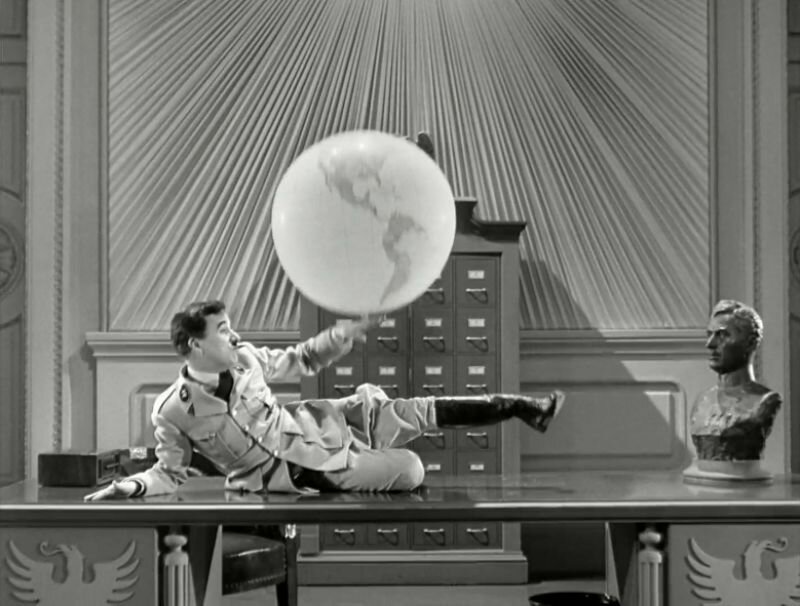
Cinedix: Contemporary Film Lexicon
An ABC of film through which Paul Kempers finds relationships between various entries from a lexicon on contemporary film. From “South Korean feel good” to “Cinéma á la Grècque” to the “Secret of the Plotless Plot” to “Bruce Willis dialectics.”
Humour, the unexpected, and Pacino, Al – Many thinkers have broken their heads over what makes something funny. Great minds like Sigmund Freud and Henri Bergson have baffled themselves over the exact mechanism to trigger laughter. The father of psychoanalysis argued that spasms of laughter were unconscious manifestations of emotions buried within the Id and the Ego, that spurred the Superego to urge the mouth to open, the stomach muscles to contract, and the vocal chords to fibrillate at maximum intensity. But still, he couldn’t quite lay his finger on what actually made something funny.

Although the vitalist Bergson believed he had uncovered the riddle of laughter with Le Rire, little laughter could be heard during the monotonous readings of his treatise on humour, and there was no revelations on the secret of the joke.
A similar fate befell the casual philosopher, Harry Mulisch, who gladly pontificated the circumstances of wit without as much as a grin from the fellow member of his gentleman’s club. (“Does the joke precede laughter, or is it laughter that brings about the joke? These oppressive questions are a necessary imperative within my writer’s practice.”)

Typically, the practice of humour wisely avoids definitions of humour. Or it’s found in the dry laconic observation that humour comes into existence once the joker enters the stage. Like one forgotten German comedian once said “Humor ist wenn ein Komiker da ist” – an equally dubious as striking deduction in light of German history and Rudi Carrell’s career.
Humour is likewise spoken little of in the world of film, apart from the screenwriters who are expected to have an answer to everything. (“Humour is the result of a mutual misunderstanding between the simple logic of the dictate of tension”) And while actors often discuss their trade, I can’t imagine a conclusive statement on the concept of humour to have ever crawled through the doors of café De Smoeshaan.
But there are actors that are unexpectedly funny.
Take Al Pacino, for example. The 74-year-old actor recently visited the Venice film festival, where two of his newest films were premiering. Pacino plays in Barry Levinson’s filming of Philip Roth’s The Humbling— a burnt out, depressed stage actor begins a relationship with a lesbian woman—and in Manglehorn, in which he, according to Dutch newspaper De Volkskrant, plays a “confused ex-convict and locksmith, who has great difficulty with social contacts.”
It all sounds very promising: the depressiveness, the confusion, and the difficulty with social contacts.

Also very promising is the discovery that the eternally grumpy looking Pacino has a sense of humour. He makes some surprising remarks during the press conference. When asked why he’s wearing mirrored sunglasses, the actor replies that his eyes are irritated from allergies. His glasses, the sharply trimmed goatee, the rings, and the beaded necklace, the mullet growing into his neck, are all part of his newest role: an aging rock star searching for his long lost daughter. The film is called Danny Collins.
When he sneezes the actor says: “I’m not sure what I’m allergic to. Maybe it’s my goatee?” See: healthy self image, a girlfriend forty years his junior, competition with Robert De Niro.
Filmlexico Cinedix appeared between 2005 and 2007 in De Filmkrant. The series was revived in 2013. The episodes are sent at irregular intervals to an irregular group of recipients. The author Paul Kempers is a film historian and works at, among others, the Amstedam film museum Eye as writer and editor.